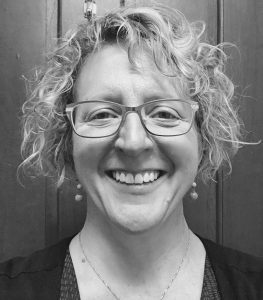 Amy C. Sullivan is an independent scholar and college professor. Her Ph.D. in U.S. History from the University of Illinois at Chicago focused on women’s history, children’s history, and the history of medicine. Specific research interests in these areas include the history of drugs, alcohol, and addiction, the history of child psychology, and trauma studies. She uses oral history, narrative, digital projects, and a robust public history mindset in all of her scholarship.
Amy C. Sullivan is an independent scholar and college professor. Her Ph.D. in U.S. History from the University of Illinois at Chicago focused on women’s history, children’s history, and the history of medicine. Specific research interests in these areas include the history of drugs, alcohol, and addiction, the history of child psychology, and trauma studies. She uses oral history, narrative, digital projects, and a robust public history mindset in all of her scholarship.
Her forthcoming book, When “Rock Bottom” Is Death: Reckoning with Opioids in the Rehab State, and accompanying Minnesota Opioid Project Archive, examines the opioid epidemic in Minnesota, the birthplace of addiction treatment in the U.S. Based on oral history interviews with more than sixty people from a variety of backgrounds, Sullivan discovered that this epidemic is changing a long-entrenched treatment system. A second book project and digital archive is in the works. What Fear Is Like: The Legacy of Trauma, Safety, and Security after the 1977 Girl Scout Murders recasts in narrative form the infamous triple murder at Camp Scott in Locust Grove, Oklahoma from the perspective of the survivors, mostly young women at the time, and explores how the trauma had a lasting impact on their lives for decades afterwards.
Dr. Sullivan has been a Visiting Assistant Professor in the History Department at Macalester College in St. Paul since 2015 and has worked as an independent researcher/writer for The Bakken Museum in Minneapolis and the National Library of Medicine in Bethesda, Maryland. She learned the most about teaching with heart while working as program director fo the Self-Sufficiency Program at the University of Wisconsin-La Crosse from 2002-2011. The one semester, pre-college program for low-income mothers taught her more about the liberatory nature of education than any teaching experience since.
She lives in Minneapolis, MN with her family.
